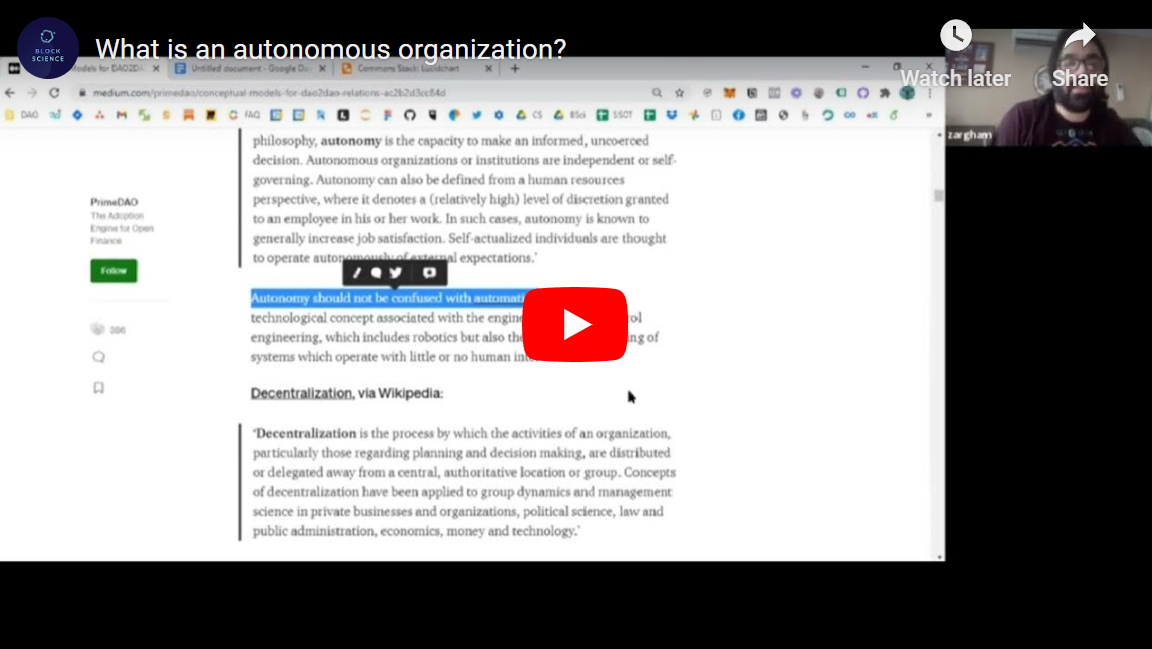Informed, Uncoerced Decisions
In developmental psychology and moral, political, and bioethical philosophy, "autonomy" is the capacity to make informed, uncoerced decisions.
Autonomy can also be defined from a human resources perspective, where it denotes a relatively high level of discretion granted to those within an organization to achieve their work, and where such functional autonomy is generally known to increase job satisfaction.
While self-actualized individuals are thought to operate autonomously of external expectation, with the rise of decentralized autonomous organizations (DAO), we begin to see independent, self-governing, and self-actualized institutions.
What is an Autonomous Organization?
In this video clip, BlockScience Founder and Chief Engineer Dr. Michael Zargham lays down a conceptual framework to understand autonomy and what it means in DAO2DAO relationships.
The following adaptation of the video transcript provides a chronological overview of the topic discussed by Dr. Zargham in the November 2022 video: 'What is an autonomous organization'.
People & Decentralised Autonomous Organizations
[00:00:00] Autonomy is not necessarily a concept that requires implementation via technology. Both political and functional autonomy are important topics within an organization where it is about the ability to decide, act, and make informed, uncoerced decisions.[00:00:20] In the same way that an individual might think about self-actualization, an autonomous organization effectively self-actualizes and decides (for itself) what it gets to do and values.
Differentiating Autonomy vs Automation
[00:00:30] We want to tease out the concept of autonomy, away from the concept of automation such as seen with computer systems or robots. Not to say the words are unrelated, but the term automation describes a machine able to make its own decisions ONLY on the proviso that you have given it [00:01:00] an explicit governing rule, a goal of some kind.
Constraints on Autonomy
Machines can learn and optimize but remain beholden to the goals you set to enable and constrain actions, and are therefore never really autonomous in the sense of having the functional or political autonomy to make their own decisions in an informed, uncoerced way. [00:01:15] In a sense, people must coerce the machine by giving it the objective we want it to achieve via algorithms or software.
Relative Autonomy
[00:01:30] In conclusion it is important to understand autonomy, especially within DAO to DAO relations where you need to consider the relative autonomy of organizations that are interacting with each other.[00:01:41] ENDS
About BlockScience
BlockScience® is a complex systems engineering, R&D, and analytics firm, integrating ethnography, applied mathematics, and computational science. We analyze and design safe and resilient socio-technical systems, and with deep expertise in market design, distributed systems, and AI, we provide systems engineering services to a wide range of clients.


